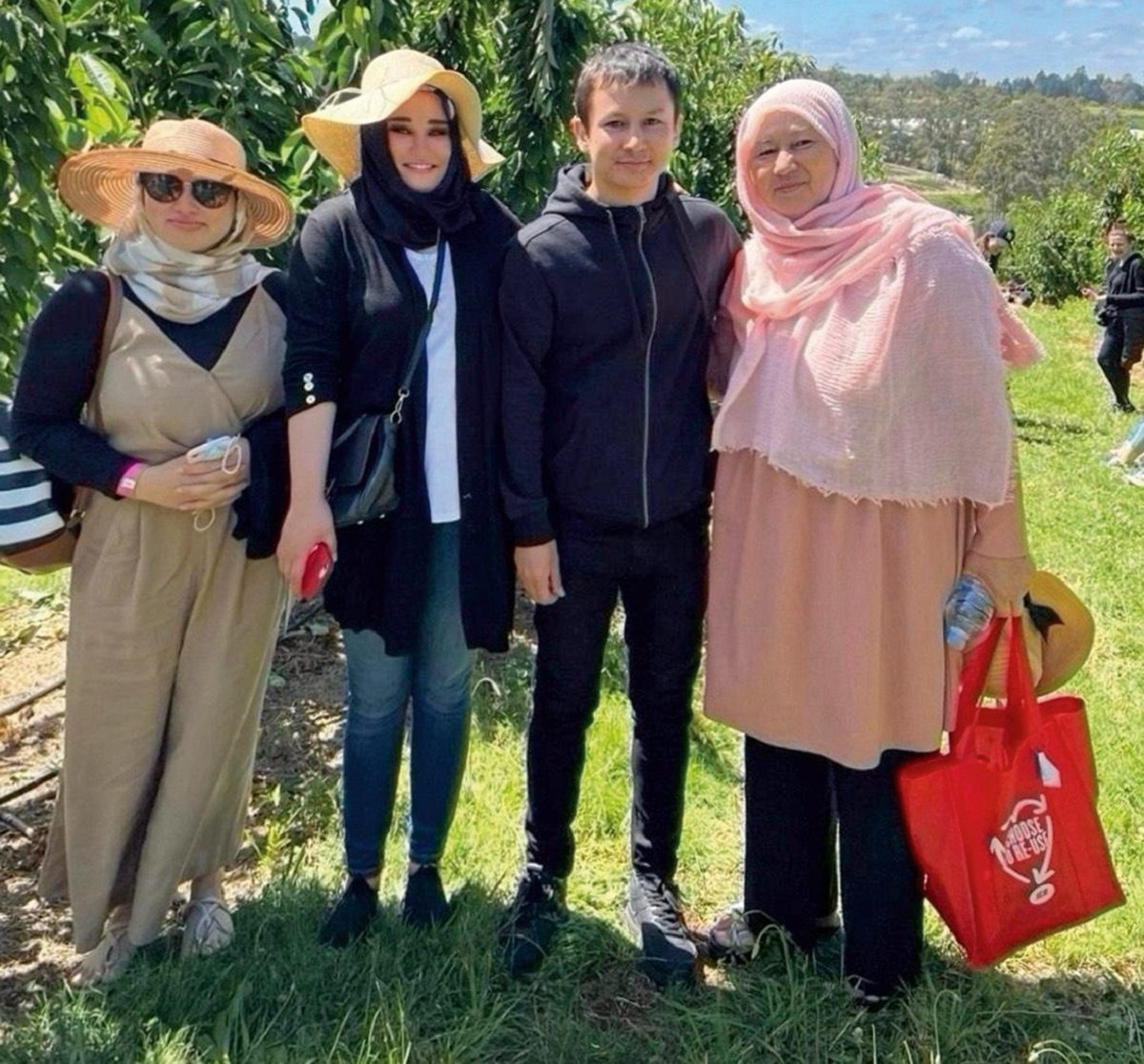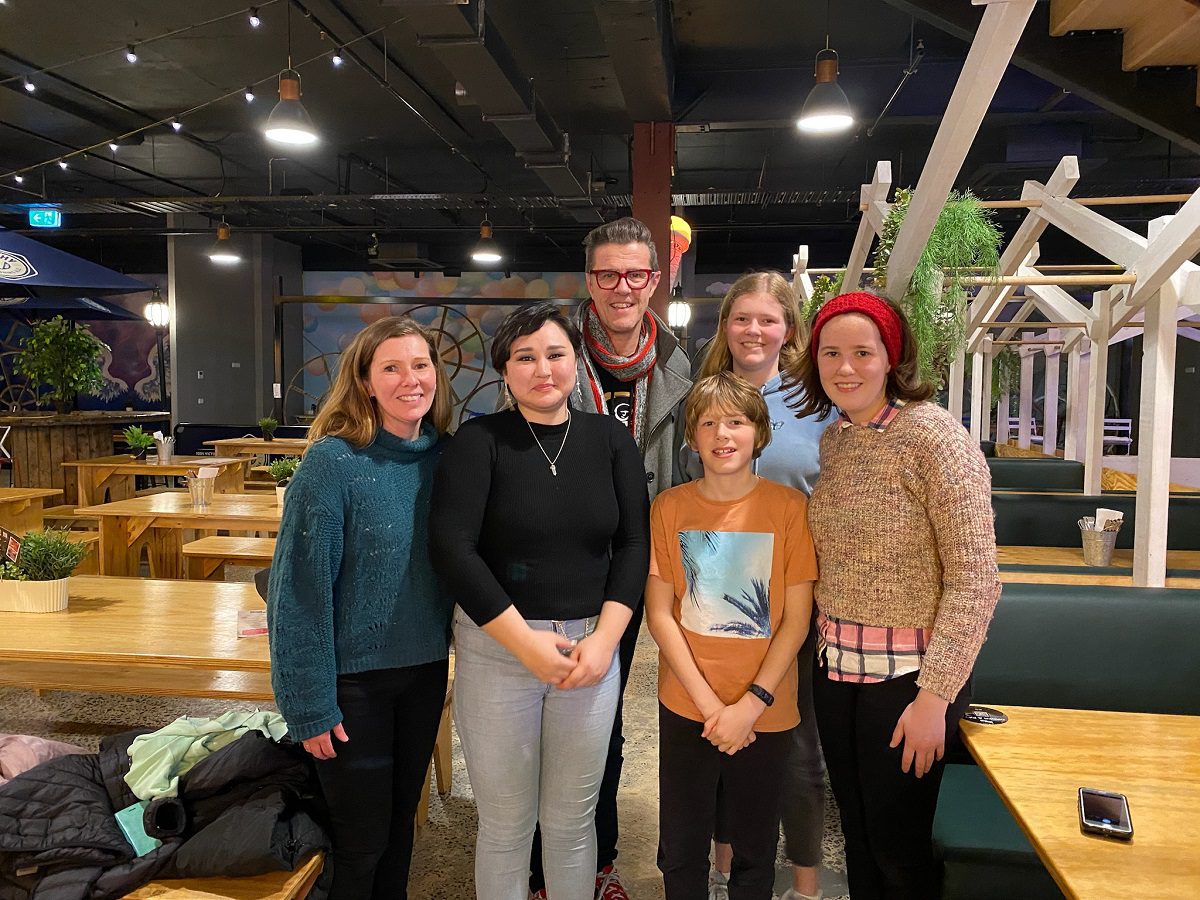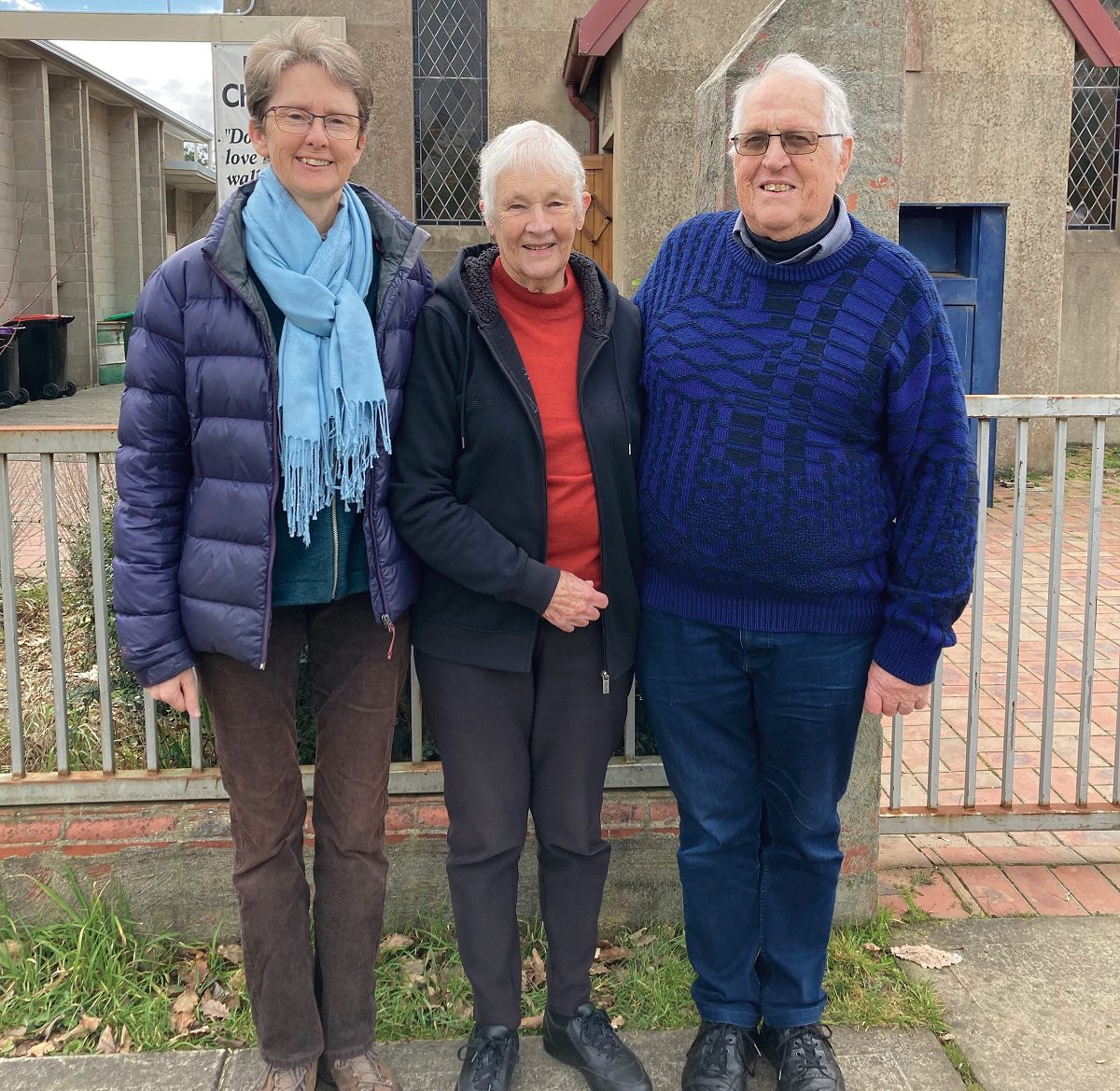By Marina Williams
Having a haven is deeply entrenched in the workings of the Uniting Church.
A commitment to helping others thrive has led members in three regional areas to support refugee families to settle in their communities.
They have been participating in the Community Refugee Integration and Settlement Pilot (CRISP), a 12-month community support program for refugee families.
Established in 2021, CRISP is designed to permanently resettle 1500 refugees within four years through independent charity organisation Community Refugee Sponsorship Australia (CRSA).
“The members of these congregations are changing lives … they are ensuring refugee newcomers receive incredible warm, tailored, holistic, hands-on support,” says CEO Lisa Button.
“It changes the lives of the people who receive the help and those who are involved as volunteers.”
Rev Cameron McAdam from Mount Eliza Uniting Church says that while the experience can be rewarding, volunteers navigate many complexities.
“People are coming from traumatic backgrounds, and there are cultural differences, so, understandably, it won’t be a straightforward process,” he says.
“Always tap into the resources available and be open to what you and your group can and cannot do.
“It was a great experience to not only work closely with another congregation to support a family, but to also understand the realities of the wider world we live in.”
It was a shared experience for the Mount Martha and Mount Eliza congregations in helping a family of four adapt to life in outer Melbourne.
“We decided to form a combined refugee support group and contacted Refugee Council of Australia to get some training,” says Karen Richards, a member of the Mount Martha church.
“However, there weren’t any families settling on the Peninsula.
“Through my work I already had contact with a family who had arrived soon after the Taliban took over Afghanistan at the end of 2021 … and I thought it could be a good match.”
The family, mum Shakira and her three adult children, Zahra, Zohra and Nayeb, had fled their home country unexpectedly.
“They didn’t even know they were getting on the plane,” Karen explains.
“The older daughter, Zahra, was being evacuated because she was the CEO of a women’s rights organisation, and the rest of the family just went to see her off at the airport.
“Before they knew it, they were on the plane, with dad and other siblings remaining.”

Shakira Kamiri and her three adult children, Zahra, Zohra and Nayeb.
Arriving with no belongings, the churches sprang into action, providing essential supplies (furniture and clothing), arranging English lessons for Shakira, and helping the family navigate daily tasks such as getting drivers’ licences and connecting with health and government services — they wanted to help the displaced family make a new home.
“We took them on outings and introduced them to AFL footy, shared meals, helped with accommodation, enrolling in education, job hunting, learning to drive and more,” Karen says.
“It was eye-opening to hear and see the trauma they had been through and how much emotional support they needed.”
While it’s been more than a year since the congregation’s commitment to CRISP has ended, they remain committed to the family.
Karen describes the experience as deeply rewarding, despite challenges that can come in resettling people from war-torn countries.
All three young adults are studying — Zahra journalism, Zorha pastry cooking and Nayeb IT, and Shakira is trying to establish a small sewing business.
“It’s been lovely to become friends with them, especially Zahra, who is now married and studying journalism,” Karen says.
“Seeing them rebuild their lives and integrate into the community has been truly inspiring.”
When eight members of the Airey’s Inlet Uniting Church decided to sponsor a refugee family through CRISP, they knew it would be a significant undertaking.
“This was the first time our congregation had done anything like this,” Mary Bremner says.
“We had to go through a lot of preparation, including applying to be part of the program, getting police checks, and putting together a profile of our town.”
Calling their sponsor team ‘Giving Hope on the Coast’, the congregation was matched with Yaritza, a widow, and her 12-year-old twins Jhon and Camila, from Venezuela, who had been living as refugees in Trinidad for four years.
The family arrived in October last year.
“The children had virtually no English when they arrived,” Mary explains.
“But through the programs we’ve set up, like swimming lessons, football, and music classes, the kids have really integrated into the community.”
She says helping the family settle in has been a major community effort.
“We had to find temporary accommodation for them, and then work to secure more permanent, affordable housing.
“We also helped Yaritza find part-time jobs at the local lighthouse tea rooms and a resort.”

Mount Eliza Minister Rev Cameron McAdam and his family with Zahra.
Mary is proud of how the congregation and town have embraced the family.
“We all got involved because it is a part of Christian living to welcome the stranger, give shelter to the homeless and asylum to those fleeing persecution,” she says.
“We are giving a chance at a new life for people who would otherwise be living without hope.
“We are people who believe that we have been richly blessed in so many ways and want to use our talents and resources to give back in some way.”
Looking to the future, Mary is optimistic about the family’s prospects.
“There’s no reason why these kids shouldn’t fly … they’re such bright, resilient children,” she says.
Yaritza is grateful for the welcome and support from the congregation.
“My life has changed in Australia because we suffered a lot in my country and in Trinidad and here the children feel very happy,” she says.
“I am super happy because I can help my family in Venezuela and I’m super comfortable.
“I feed my children, they eat well and I’m super grateful to everyone because they have helped me a lot and I thank God and the CRISP group.”
When Woodend’s Robyn Zumstein heard about CRISP, she decided to get involved.
“My close aunt, Jill Pattenden, who lived in Swan Hill, had been heavily involved in supporting asylum seekers and refugees,” Robyn explains.
“I’d seen her influence there and met some of the people she’d helped. Her attitude was ‘If there’s a need, you just do it’, so I thought maybe I could do that, too.”

Macedon Ranges Partnership Uniting Church members Robyn Zumstein and Bev and Paul Gilbertson are part of the Woodend Refugee Resettlement Group.
It was a feeling that resonated with others in the wider Macedon Ranges community.
Soon, the newly formed Woodend Refugee Resettlement group had 15 members, including three from the Macedon Ranges Partnership of the Uniting Church — Robyn, Bev Gilbertson and Paul Gilbertson.
Since coming together mid-last year, the group has been supporting a Syrian refugee family of five, including three young children, who had been living in Lebanon for 10 years after fleeing their home country.
The family has been in the Macedon Ranges for five months.
Settling in a small regional community after living in a large city brings multiple challenges, Robyn says.
“Communication is a huge issue,” she says.
“They have very limited English, plus they have come from a war zone and may have experienced unspeakable trauma.
“We work to connect them to settle into a community that is safe.”
Despite language and cultural barriers, the group is supporting the family to settle in, from furnishing their new home to helping enrol the children in school.
“We’ve got support from the CRISP organisation, but we don’t have the knowledge that refugee support workers would have, so it is major learning curve and a big undertaking,” Robyn says.
“Our group is essentially their refugee support worker.
“Sometimes, you find yourself second-guessing what to do but, as a group, you unite to work with the family to do what they can do, when they can do it.
“It’s still early days for them, but they’ve only been positive about everything to the point of saying things like, ‘I’ve never been so respected for my religion, ever in my life before’.”
Click here for more information about Community Refugee Sponsorship Australia

